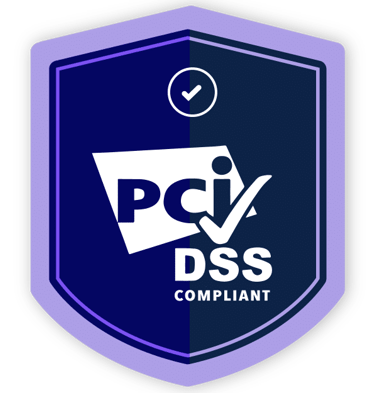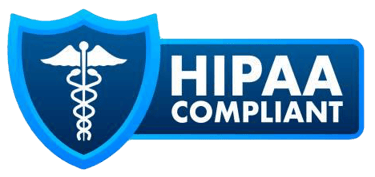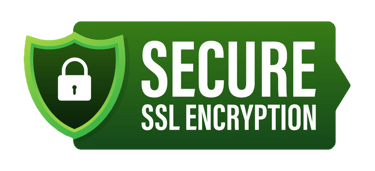How to Start a Medicare-Certified Home Health Agency | Licensing & Certification Guide
Learn the step-by-step process to start a Medicare-certified home health agency. Get expert help with licensing, certification, and compliance from HealthBridge.


Starting a Medicare-certified home health agency (HHA) can be both rewarding and challenging. Home health care is one of the fastest-growing healthcare sectors, driven by the need to serve patients in the comfort of their homes while maintaining quality and compliance with federal regulations.
If you’re considering launching a home health agency, it’s essential to understand the licensing, certification, and compliance requirements that Medicare demands. This guide provides a clear roadmap — and shows how HealthBridge can help you navigate the process seamlessly.
Step 1: Understand the Role of a Medicare-Certified Home Health Agency
A Medicare-certified home health agency provides skilled nursing and at least one other therapeutic service (such as physical therapy, speech therapy, or occupational therapy) to patients in their homes.
Medicare certification is critical because it allows your agency to:
Bill Medicare for covered services.
Gain credibility and attract more referral sources.
Demonstrate compliance with Conditions of Participation (CoPs) outlined by the Centers for Medicare & Medicaid Services (CMS).
Step 2: Obtain State Licensing
Before applying for Medicare certification, most states require agencies to obtain a home health agency license. Licensing requirements vary by state but often include:
Submitting an application with business details.
Developing agency policies and procedures.
Meeting staffing requirements (registered nurses, therapists, aides).
Demonstrating financial stability and an overall operational plan.
Tip: HealthBridge specializes in helping agencies prepare their licensing applications, ensuring all state-specific requirements are met the first time.
Step 3: Apply for Medicare Certification
Once your agency is licensed at the state level, you must apply for Medicare certification. This involves:
Completing CMS Form 855A (Medicare enrollment application).
Obtaining a National Provider Identifier (NPI).
Submitting your application through the Medicare Administrative Contractor (MAC).
Meeting initial patient census requirements (at least 10 skilled patients, with 7 under active care at the time of survey — or 5 in underserved areas).
Step 4: Prepare for the Initial Survey
Your agency must pass a survey conducted by state surveyors or an accrediting organization (such as CHAP, ACHC, or The Joint Commission). The survey reviews compliance with CMS Conditions of Participation, including:
Comprehensive patient assessments (§484.55)
Care planning and coordination (§484.60)
Quality assurance and performance improvement (QAPI) (§484.65)
Infection prevention and control (§484.70)
Clinical records and documentation (§484.110)
Surveyors will review clinical records, interview staff and patients, and observe home visits to ensure your agency is survey-ready.
Pro Tip: HealthBridge helps agencies develop compliant policies, train staff, and conduct mock surveys to ensure readiness.
Step 5: Build Your Team & Policies
Medicare-certified agencies must have qualified staff and clear policies in place. Key roles include:
Administrator: Oversees daily operations.
Director of Nursing / Clinical Manager: Supervises clinical staff.
Skilled Professionals: RNs, PTs, OTs, SLPs, MSWs.
Home Health Aides: Provide personal care under supervision.
Written policies should cover everything from patient rights to emergency preparedness. Documentation is critical for both compliance and survey success.
Step 6: Develop a Compliance & Quality Program
CMS requires agencies to implement Quality Assessment and Performance Improvement (QAPI) programs. Your QAPI plan should:
Monitor clinical outcomes and patient satisfaction.
Identify and address performance gaps.
Document corrective actions and improvements.
Additionally, agencies must have ongoing compliance programs to ensure adherence to Medicare billing rules, HIPAA privacy standards, and clinical best practices.
HealthBridge provides tools and consulting support to set up effective QAPI and compliance programs that satisfy CMS requirements.
Step 7: Maintain Ongoing Compliance
After certification, your agency must remain survey-ready at all times. This includes:
Conducting regular chart audits.
Training staff on compliance updates.
Submitting OASIS (Outcome and Assessment Information Set) data on time.
Staying current with Medicare regulations and state licensing requirements.
Reminder: HealthBridge offers continued compliance support to ensure agencies remain in good standing with CMS and state regulators.
Why Work with HealthBridge?
Starting a Medicare-certified home health agency is complex, but you don’t have to do it alone. HealthBridge provides comprehensive support with:
State licensing applications.
Medicare enrollment and certification.
Policy and procedure development.
Staff training and compliance programs.
Survey preparation and ongoing consulting.
With expert guidance, agencies can avoid costly mistakes, speed up certification, and focus on providing quality patient care.
Final Thoughts
Launching a Medicare-certified home health agency is a significant investment, but the rewards are worth it. By following the right steps — from licensing and certification to compliance and quality improvement — your agency can build a strong foundation for long-term success.
Partnering with experts like HealthBridge ensures you stay compliant, survey-ready, and positioned for growth in the competitive home health industry.
Home Health CoPs – 42 CFR Part 484
Comprehensive Assessment (§484.55)
Plan of Care (§484.60)
QAPI Program (§484.65)
Infection Prevention & Control (§484.70)
Clinical Records (§484.110)







